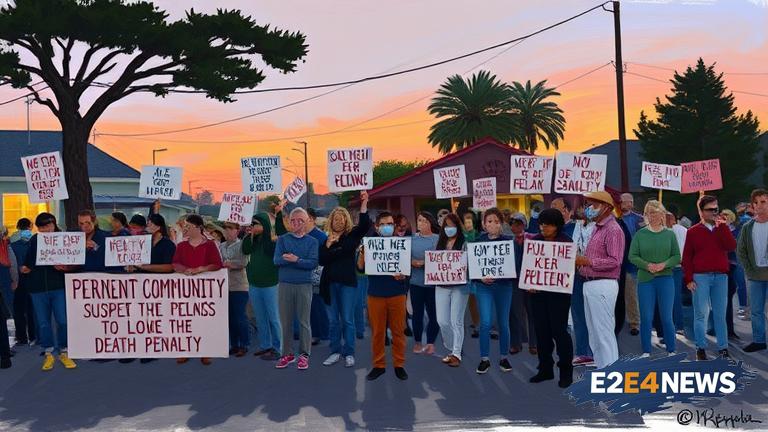The recent mass shooting in Half Moon Bay, California, has left the community reeling and searching for answers. On January 23, 2023, a gunman opened fire at two mushroom farms, killing seven people and injuring one. The suspect, Chunli Zhao, was arrested and charged with seven counts of murder. As the community begins to heal and process the tragedy, many are speaking out against the death penalty for the suspect. The death penalty has long been a contentious issue in the United States, with proponents arguing that it serves as a deterrent to crime and provides justice for victims and their families. However, opponents argue that it is inhumane, ineffective, and disproportionately affects marginalized communities. In the case of the Half Moon Bay mass shooting, many community members are advocating for a more nuanced approach to justice. They argue that the death penalty would not bring closure or healing to the victims’ families, but rather perpetuate a cycle of violence and trauma. Instead, they are calling for a focus on rehabilitation, restorative justice, and community-based solutions to address the root causes of violence. The community is also highlighting the importance of addressing the social and economic factors that contribute to violence, such as poverty, lack of access to mental health resources, and social isolation. Furthermore, many are pointing out that the death penalty is not an effective deterrent to crime, and that it is often applied unfairly and disproportionately to people of color and low-income communities. The American Civil Liberties Union (ACLU) has also spoken out against the death penalty, citing its ineffectiveness and the risk of wrongful convictions. In addition, the National Coalition to Abolish the Death Penalty has highlighted the need for a more compassionate and restorative approach to justice. The community of Half Moon Bay is coming together to support the victims’ families and to advocate for a more just and equitable response to the tragedy. They are organizing vigils, rallies, and community events to raise awareness and promote healing. The local government is also taking steps to address the root causes of violence, including increasing funding for mental health services and community programs. As the community continues to heal and process the tragedy, it is clear that the death penalty is not the answer. Instead, the community is calling for a more nuanced and compassionate approach to justice, one that prioritizes rehabilitation, restorative justice, and community-based solutions. The case of the Half Moon Bay mass shooting is a stark reminder of the need for a more just and equitable society, one that values human life and dignity above all else. It is a call to action for communities across the country to come together and advocate for a more compassionate and restorative approach to justice. The community of Half Moon Bay is leading the way, and their efforts will have a lasting impact on the national conversation around justice and morality. In the end, it is up to us to create a society that values human life and dignity, and that prioritizes justice, compassion, and healing. The death penalty is not the answer, and it is time for us to move towards a more just and equitable future. The community of Half Moon Bay is a shining example of what it means to come together and advocate for justice and morality. Their efforts will not be in vain, and their message will resonate across the country. As we move forward, it is essential that we prioritize justice, compassion, and healing, and that we work towards creating a society that values human life and dignity above all else.





